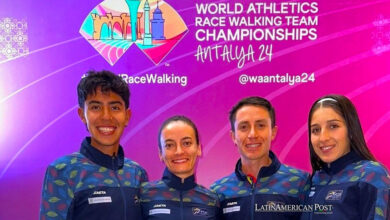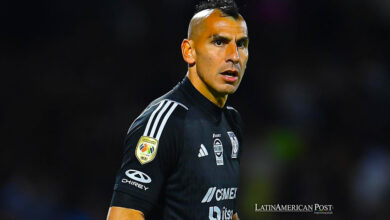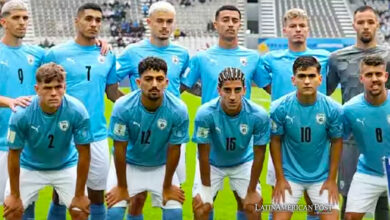Sportswashing, Sport as a Public Image Strategy
The suspicious interest of governments and companies in sport usually has a hidden interest. Do you know what sportswashing is?

Photo: Unsplash
LatinAmerican Post | Luis Ángel Hernández Liborio
Surely you have wondered what is behind the interest of companies or governments in the sport. Sometimes there may be a mere commercial, tourist, or investment interest, but in other darker cases, it can be a tool to improve the public image of companies, governments, or individuals who are not popular.
Sportswashing, a facet of soft power
To better understand sportswashing it is necessary to understand soft power, known in the Spanish language as “soft power”. The term was coined by the American political scientist Joseph Nye and refers to the ability of governments, mainly, to achieve their goals through “peaceful” means and that even have a good image: culture, art, and sports are some examples.
Peruvian gastronomy, the archaeological sites of Mexico, the biodiversity of Colombia, the expansion of the French language, Hollywood, or Bollywood cinema are just a few examples of how States use soft power to attract investment or tourism, reach more markets, or simply expand their zone of cultural influence. Sport is no stranger to this dynamic, which is why obtaining the venue for the World Cup, the Olympic Games, or a Formula 1 Grand Prix becomes a real battle.
Thus, sportswashing has become a trend due to the controversies generated by the scandals of the FIFA World Cup Qatar 2022, since the Qatari government is accused of using the event to clean up its image at the international level deteriorated by its diplomatic problems. with your neighbors.
Also read: The Dark Side of the Qatar World Cup 2022
Saudi Arabia
Complaints are concentrated in this country for violating the human rights of women, children, minorities, and the labor rights of migrants, in addition to having an authoritarian and undemocratic regime. The case of the Saudi journalist Yamal Khashoggi stands out, who according to US intelligence was assassinated on the orders of the Saudi crown prince: Mohammed bin Salman, as France 24 affirms.
In parallel to 2021, the Kingdom’s Public Investment Fund, club Newcastle Premier League in a historic move. In 2021 the kingdom hosted the Formula 1 Saudi Arabian Grand Prix, at the beginning of 2022 it also received the Spanish Super Cup and has plans to be candidates for the Club World Cup, the Soccer World Cup, and even the Olympic Games, events that would improve its international image.
China
China is a global power, according to the International Monetary Fund, its GDP is ranked number 2 in the world, just below the United States and surpassing that of the European Union. In addition, it has a very large military capacity. Like Saudi Arabia, an undemocratic government, violations of the human rights of millions of people, and the lack of freedom of the press have “bordered” the Chinese government to look to sport for a way to clean up its image.
The Chinese Grand Prix is insured until 2025, according to Marca. Beijing hosted the 2008 Summer Olympics and in 2022 it will host the Winter Olympics. To prevent the success of the Games, several countries, including the United States, have announced a diplomatic boycott, that is, without the presence of their high-ranking officials. The case of the tennis player Peng Shuai was in the global media at the end of 2021, since the athlete reported sexual abuse by a high-level Chinese official, after which Shuai remained suspiciously absent for a few days. The Asian country faces serious image problems due to its business practices, support for governments with serious accusations, so it is worth asking if investment in sport is enough to “clean” its image.
Nothing new under the sun
Although the term seems new, the truth is that sportswashing has been around for decades. It is easy to go back to the 1936 Berlin Olympics, with which Adolf Hitler sought to cleanse the negative image of his regime. In 1978 the dictatorial regime of Jorge Rafael Videla used the World Cup to show an image of a free and progressive Argentina, however, the critical situation in the country exceeded any “cleansing” that the event could provide.
Finally, two opposing dictatorships starred in episodes in which sport was the attempt to maintain a positive image abroad: Raúl Castro’s Cuba and Augusto Pinochet’s Chile. Cuban sport has been standing out for decades above the countries of the region at the Olympic level, showing itself to be one of the successes of its economic model and its form of government, just as soccer did in Chile during the Pinochet regime, who used to maintain a “healthy” image abroad and at the same time have tight control of the population through their love of this sport.





